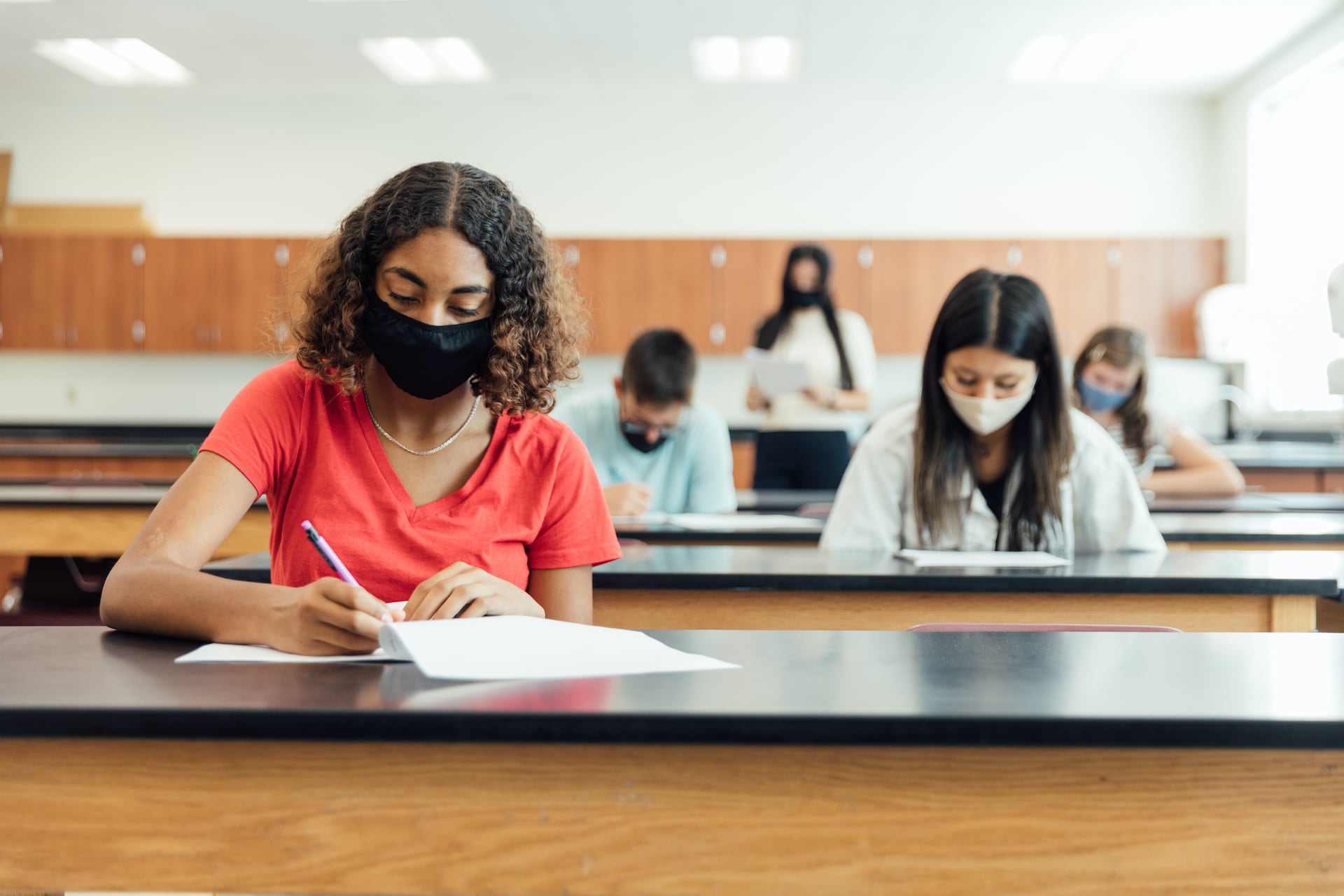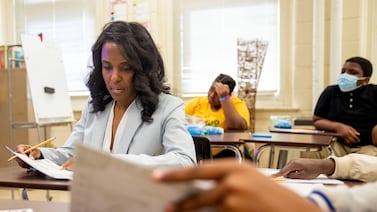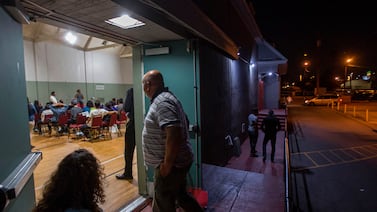A yearslong effort to rethink how New York students earn a diploma is inching along with the announcement of a new pilot program on Monday aiming to study alternatives to the more than century-old Regents exams.
The pilot program, which is still in the planning stages this school year, will add some real-world data to other efforts that are again underway over diploma regulations. State officials are restarting a series of roundtable discussions with educators and families across the state about how they’d want to change diploma requirements, they said Monday. That initiative had started in 2019, but paused in March 2020 when the COVID pandemic hit New York.
A blue ribbon commission is expected convene for roughly two years, starting this time next year. The commission will present recommendations to the Board of Regents in 2024 on how to change graduation requirements based on the roundtables and other work — about three years later than the state had planned. When considering changes, the board is expected to also consider the results of the pilot, officials said.
The pilot isn’t an effort to “replace” the vaunted Regents exam, which has for years been the subject of scrutiny. Decades of research shows they don’t better-prepare graduates for life after high school and can harm certain students, such as students of color from low-income families.
Instead, the pilot would offer students “different avenues to demonstrate their knowledge,” a state education department spokesperson said. In recent years officials have expanded ways students can fulfill Regents exam requirements, which has contributed to the state’s and city’s rising graduation rate.
State officials will spend the coming year planning out the pilot, looking at some models across New York that already use performance-based assessments such as projects, essays, or other student work that demonstrate what they’ve learned in lieu of Regents exams.
That includes a group of roughly three dozen “consortium” schools in New York City who have been approved by the state to grant diplomas based on oral presentations, essays and research papers, science experiments and higher-level math problem-solving. Officials are also looking at the International Baccalaureate program and career and technical education programs.
Many members of the Board of Regents voiced support for the plan and alternate assessments to the Regents, which tend to include multiple choice and essay questions. New York is one of less than a dozen states that still requires students to take exit exams to earn a high school diploma.
“We have to move away from this idea, for example, that there’s just one right answer,” said New York State Education Chancellor Lester Young at Monday’s Board of Regents meeting. “We live in a world where that just doesn’t work anymore. However, what we do in school has to be aligned with the way the world is today, right?”
Officials are hoping the pilot program lasts six years, with the first two and a half years of work funded by a $500,000 grant from the Carnegie Corporation of New York. (Carnegie Corporation of New York is a funder of Chalkbeat.) That means the pilot will still be going on after the Board receives recommendations about tweaking graduation requirements.
Four recent studies showed students who participated in project-based learning in social studies and science courses posted higher scores than their peers on state assessments and Advanced Placement tests. All four studies focused on curriculum that was developed over several years, taught by teachers who were “extensively” trained, the Hechinger Report reported.
Allison Armour-Garb, a special advisor to the executive deputy commissioner, said the department will work with researchers to examine the pilot and how students are performing. They will also look at what support schools need, including professional development, in order to help schools take up performance-based assessments, Armour-Garb said.
“The purpose of this grant is to explore whether performance-based assessment approaches can be implemented in a diverse range of schools — urban and rural, big and small, different student demographics — and how to support schools in making such a transition,” Armour-Garb said.
The news was welcome to some advocates who have for years been pushing the department to reconsider Regents exams.
Ashley Grant, director of the Postsecondary Readiness Project at the nonprofit Advocates for Children, said they’re “pleased” officials are looking at project-based assessments as a way to evaluate students.
“Right now, most high schoolers in [New York State] are still required to pass four to five high-stakes tests to earn a diploma,” Grant said in a statement. “We agree with NYSED that these types of assessments do not prepare students for postsecondary success and continue to urge New York State to act as soon as possible to decouple Regents exams from graduation requirements.”
Some members of the board of Regents were concerned that the 2024 deadline for recommendations on graduation requirements is too delayed. Regent Roger Tilles, who represents Long Island, said even pushing it up one year felt too long.
“I would love to see this moved up as much as we can,” Tilles said.







